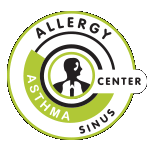Over-the-counter Medicines for Nasal Symptoms
What to Buy for Allergic Rhinitis Relief
Let's talk for a bit about common allergy medications. In the interest of time, I’ll focus on medicines used to treat nasal symptoms, what doctors call rhinitis.
The most common medications used for rhinitis are antihistamines. Antihistamines work, as their name suggests, by blocking the effects of the chemical histamine. They are particularly good for controlling symptoms of nasal itching, sneezing, runny nose, and itchy eyes. They are not very good at controlling nasal congestion and drainage. Older antihistamines like diphenhydramine (benadryl), chlorpheniramine (chlor-trimeton) , and hydroxyzine (atarax, vistaril) are very potent, but they are also very sedating. Newer antihistamines such as cetirizine (zyrtec), fexofenadine (allegra), and loratidine (claritin) are classified as low- or non-sedating and still have adequate potency. I generally recommend one of the newer medications. Cetirizine and loratidine are available over-the-counter and as store brands.
Decongestants also do what their name suggests: help control nasal congestion. Some people find they help with symptoms of pressure and pain as well. They work by constricting the blood vessels in the nose which, in turn, shrinks the lining of the nasal passage. Since they are oral medications, they will also constrict the blood vessels in the rest of the body, which can worsen blood pressure, In guys, they can also worsen prostate problems. They cause insomnia in a number of people as well. Because of all these side effects, I avoid decongestants as much as possible and limit their use to short periods of time.




